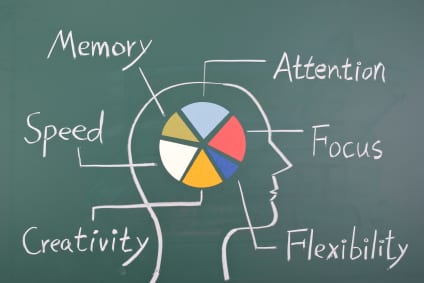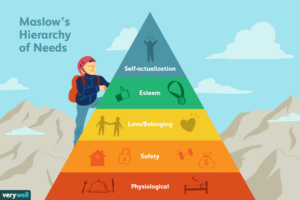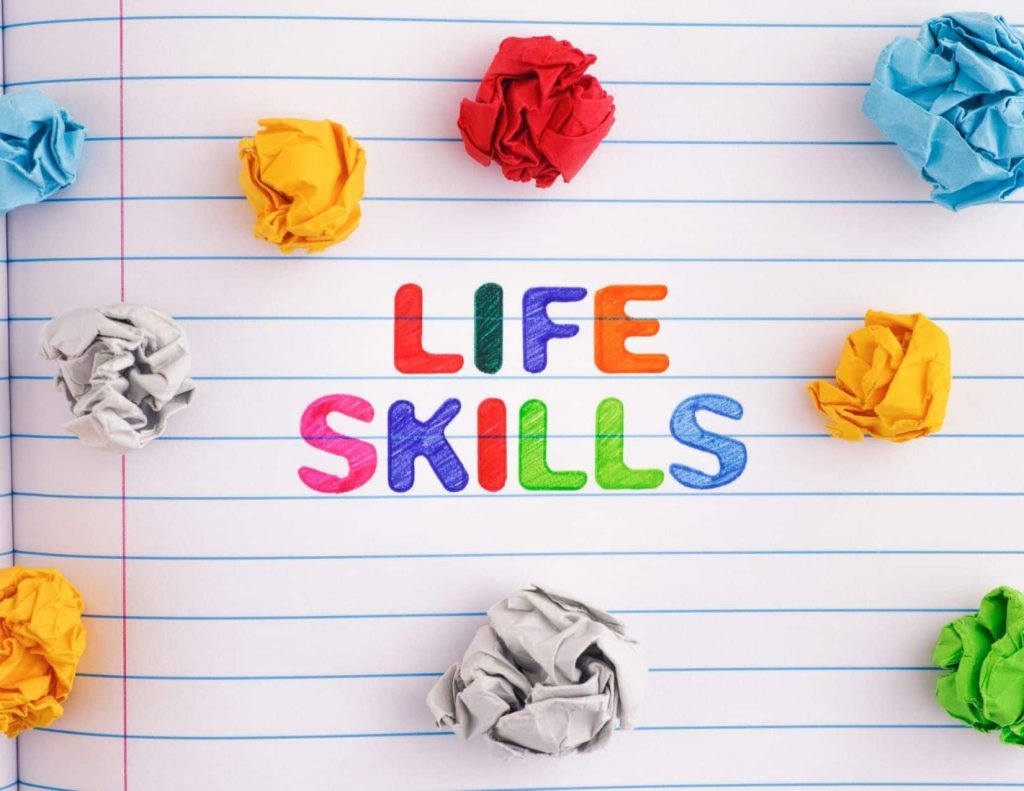Introduction to Meditation
Meditation is an exercise where a person uses a method – such as mindfulness or concentrating the mind on a certain subject, thought, stuff, or action to achieve an emotionally relaxed, and stable state. Meditation helps a person to increase his concentration and self-awareness skills. To cope with this stressful day-to-day life, one needs to give his/her some minutes of daytime meditation. Meditation can change one’s life.
It is so beneficial as it can help you to be productive and free from depression
It can boost us to increase our efficiency in this tiring life. Other than these, meditation has a lot of advantages and benefits in our life. There are numerous meditation techniques for every kind of psychological condition. It greatly helps us to alleviate our mental and physical conditions.
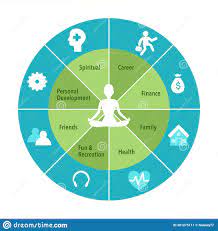
Meditation for Beginners
If you’re a fresher and you are going to do it for the first time in your life then you should start with some easy and relaxing meditations. It is easy to learn and very much beneficial for the person. Here are some basic tips for you when you start doing meditation for the first time:
First, find yourself in a calm and peaceful place to do meditation. It should be comfortable and clean.
Shut down your eyes and be quiet for a minute and more. You may have thoughts at that moment but that’s not a big problem. Then you can play meditation music or mantra from your phone. You can get it easily from YouTube. The meditation music should be for 4-5 minutes.
Listen to the music and try to make yourself calm and still. Also, Chant the mantra in your head without using your tongue and lips Do this for a maximum of 5 minutes and a minimum of 3 minutes. Try to increase the time of meditation daily.
You should do meditation in the morning as it will be the most effective in the morning. Just stay calm and just do nothing. You should always choose a fixed time and space for your meditation as it is the most important thing as a beginner. However, the time to meditate is in the morning. So these are some basic steps if you want to start meditating as a beginner. These are the simplest methods to start as a beginner.
You can track your meditation in the table (in minutes)
| Meditation | Track your record |
| Week 1 | |
| Week 2 | |
| Week 3 | |
| Week 4 | |
| Week 5 | |
| Week 6 | |
| Week 7 |
Types of Meditations
There are various kinds and types of mediations that are used by different people in their day to day life. Here we are going to inform you about the most common and beneficial types of meditation that we should adopt in our daily life.
Yoga- Now Yoga is also considered a kind of meditation as it includes conscious breathing and your control over-breathing. Nowadays more and more people are recognizing that Yoga is a type of meditation. According to ‘Katha Upanishads’ Yoga is defined as “When the five senses, along with the mind, remain still and the intellect is not active, which is known as the highest state. They consider yoga to be firm restraint of the senses. Then one becomes un-distracted for yoga is the arising and the passing away”.
Lastly, Yoga has a lot of benefits if you adopt it in your daily life. It can enhance your quality of life and can improve your day-to-day life. Helps you to improve the flexibility and strength of your body. It can help with your back pain and heart fitness. It can also help you to improve your sleeping problems and stress-related problems.
Meditation Type – Mantra Meditation
Another easy and effective type of meditation. It can help you to increase your concentration power and self-consciousness. It can reduce your stress make you calm and more positive towards life. You just have to think about a Mantra, which can be a word or a phrase that you have to repeat during your meditation.
You can even choose ‘Be happy’ as a mantra for you. It is believed that choosing a Mantra can help you to increase your concentration power. After choosing your Mantra, you have to breathe deeply and examine the thoughts that come into your mind without acknowledging them. Mantras have a lot of influence over our minds and body. Chanting Lastly, Mantras can help us to remove negativity from our bodies and add positivity everywhere around us.
Meditation Type – Guided Meditation
Another type to Meditate that will be a lot more beneficial to your body. In this type of meditation, a teacher will guide you to meditating. It can be performed in person, through a video or audio. The teacher will explain to you the techniques of meditation and the thoughts, you will have during meditation. It is more comfortable to do guided meditating before unguided meditation if you are a beginner. A teacher will help and guide you to learn the basics of meditating. However, it depends on you, which type of meditation you want to start. Both guided and unguided meditation are equally effective when done properly.
Guided as well as unguided meditation is so much beneficial for your physical and mental health. These meditations can change your life effectively. They can make you stress free and positive.
Benefits of Meditation
There are plenty of benefits one can expect from doing regular meditation. Also, the benefits of meditation are not like other regular benefits which vanish quickly after the process behind them is stopped. Rather than that, the benefits of meditation stay with you for the entire day after you meditate for even half an hour in the morning. Hence, the benefits of meditation are long-lasting. A few of them are listed below.
Emotional Well Being and Stability
Meditation helps you to clear away all the information overload that initially builds up every day and contributes to your stress and tensions. The emotional benefits of meditation can help you gain a new perspective on stressful situations and will equip you with skills which are required to manage that stress. Also, it can helo you increase your self-awareness and focus on the present. It reduce negative emotions from life and promote a positive mindset. Moreover, it increases imaginative powers and creativity with increase in patience and tolerance.
Freedom from Diseases and Illness
Meditation can not only help one to cure the existing illness but many times regular meditation may also help to prevent one from occurring. However, many bodies of scientific research support the health benefits of meditation, some researchers believe it’s not yet possible to conclude the possible benefits of meditation.
Other benefits of meditation
It in usually a very beneficial practice to follow but there are certain drawbacks associated to it. Keeping that in mind, some research suggests that it may help people to manage few symptoms of conditions such as:
Anxiety
Asthma
Cancer
Chronic pain
Depression
Heart disease
High blood pressure
Irritable bowel syndrome
Sleep problems
Tension headaches
Hence, it would be considered a safe practice to talk to your health care provider such as your regular doctor about the pros and cons of using meditation if you have any of these conditions or other health problems. You need to be very clear with this data before starting with meditation because in such cases, it can worsen symptoms associated with certain mental and physical health conditions.
We cannot claim that meditating is a replacement for the conventional medical treatment that is being followed for ages. But it may be a useful addition to your existing treatment.
This is a very subjective question and the answer to this varies from person to person. It is up to you how much spare time you have and how often you would like to meditate. Usually, on average, few people benefit from meditating just in one sitting in the morning. Few other people tend to have two sittings in a day, one in the morning and one in the evening. It is just the more you practise meditating the more benefits you will get. Regular meditation will help you overcome overthinking and get enough peace of mind after a stressful day.
Meditation Benefits for Different Age Groups
What impact does meditating has for different age groups? Let’s have a look.
Meditation Benefits for kids
Doing regular meditating can help kids with good sleep, it will make them more attentive, increased focus, better retention of information, energised mood, improve creative skills and self-regulation.
Meditation Benefits for adults
Regular meditating can help adults to gain a new perspective on different stressful situations of life, it will help to build skills of stress management, increasing self-awareness, focusing on the present, reducing negative emotions, increased imagination and creativity and increased patience and tolerance.
Best Posture for Meditation
Your posture is extremely important before you start meditating. There are several postures for meditating. You should find out a posture in which you feel the most relaxed and comfortable. Also, That posture may include any from the ones listed below.

Sitting Posture
Sitting posture for meditating is one of the most common postures. You can sit in a normal cross-legged position and make sure that you are sitting on a comfortable mat. Also, sitting on a mat with a cross-legged position is not mandatory and you can even try sitting on a chair as well. Just that, you will have to make sure that you sit on the edge of the chair with your back straight and hands resting on the top of your legs.
Standing Posture

If you follow a standing posture while meditating then it will lead to your body getting more stronger because in this posture, your legs and core begin to exert little effort to keep you in this position, which essentially acts as a workout for the body. Hence, you get the advantage of meditation and workout both in one go.
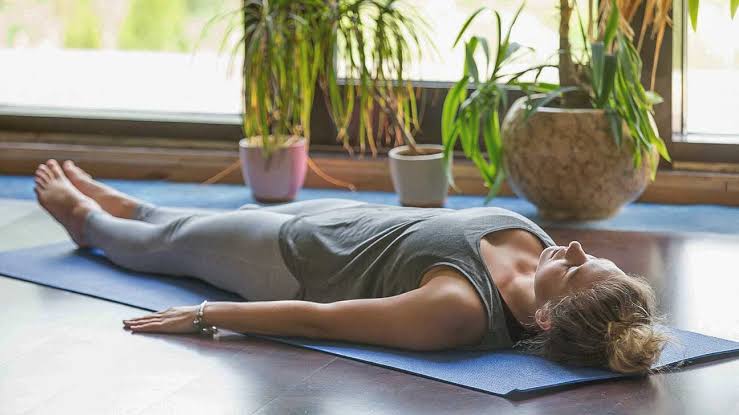
Kneeling position

Kneeling is a posture which involves sitting on the floor for meditation. This posture is for those who don’t find the cross-legged posture as comfortable. However, you must avoid this posture if you suffer from knee pain and try some other pose.
Some Meditation Applications
Many times people find it hard to squeeze out time for meditation and the process of beginning in itself seems a major task. However, technology has made things like this quite doable. Lastly, A large number of mobile apps have been mushroomed these days to smoothen the process of meditation for beginners. These apps are very useful and simplify the process of meditating.
Also, there are many apps for meditation which charge humungous amounts. Here are several meditation-teaching apps that would actually cost you very little penny or even nothing and are blessedly free for you. You’ll find the the best ones are listed below to help you download them onto your phone to ease the process of meditation for you.
Insight Timer

A solid player in the meditating apps market. They have sustained amazingly and are doing even better day by day. You will be short of sentences to praise this one. Also, you can never complain that this app has left you short of content because there is plenty of it. Also, you receive a “MembersPlus” option too and you can access it through a Paywall. However, there is much content that you could probably meditate on for several days and not run out of guided lessons on this particular app.
Headspace
Headspace has a very vibrant and colorful interface is like a warm welcome for newbies. Well a subscription fee is charged usually but not immediately as such. What you can do is that access a two-week free trial or a library of no-strings-attached content designed to help with the mental struggles that will likely crop up during COVID-19.
Aura

Aura is a free app to use for one. It has a customized three-minute meditation for each day. And if you’re just getting started, that tiny chunk of mindfulness might be just what you want and need.
Best Music for Meditation.

If you accompany some music with your daily meditation then surely you will enjoy the process even more. Music simply enhances the mood and supports the process of meditating. Human beings have used music for so long in the meditation process. Classical music or something like soft pop can be a very good option to be accompanied with meditation, mindfulness and also yoga sometimes. The music of meditation is slightly different from the regular beats you listen to. This type of music has relaxing sounds to promote meditating that can help you take your mind off the unwanted noises that surround you all the time.
Meditation music can help to calm your nerves and take all of your attention away from your forever noisy brain. It also helps to relax our body by stimulating the parasympathetic nervous system, which helps our body relax and prepare for good and healthy sleep. Music can certainly have an impact on your mood. Here, the type of music is also very crucial. Few pieces of music generally offer the greatest mood-boosting benefits, while heavy metal and techno music are ineffective and even further they tend to be detrimental.
Frequently Asked Questions.
What are the main benefits of doing regular meditation?
The main benefits of doing regular meditating may include controlled anxiety, promotes emotional health, enhances self-awareness, lengthens attention span, may reduce age-related memory loss, can generate kindness, and it may help fight several addictions.
What will you achieve if you meditate regularly?
If you practice meditation regularly then over the period of time, you will achieve mindfulness. It will increase cognition, memory and attention. Also, it helps to decrease emotional reactivity, stress, anxiety and depression.
What are the signs that tell if my meditation is working or not?
Given below are few signs that will tell you whether your meditation is working or not:
You will start feeling more motivated.
Your sleep cycle will get better and improve.
You will stop comparing your practice.
Suddenly you will notice that you’re less stressed than before.
You have more room in your mind.
Meditation isn’t something you have to do – you look forward to it.
You realize you don’t need a dark room and scented candles.
Is it fine if I meditate after having food or should I do that empty stomach?
Well, it is always advisable to practice meditation before having any meal. Because there are fair chances that you may doze off if you meditate after having a meal. Also, if you are too hungry, then that is too, not a good practice because staying hungry will eventually distract you. So try to practice meditation at least two hours after your meal.
Who was the “Father of meditation?”
Paramahansa Yogananda is known as the father of meditation. He travelled from India to America in 1920 and there he established this alternative spirituality. It is at the same time strange as well as the proud moment that the origins of meditation are in India. But Yogananda developed it in America.
History and Origin of Meditation
It is believed to arise thousand of years back. We know that modern humans evolved on earth about 10,0000-40,000 years ago. Since then, cave art and other things developed. Just like this, it is believed that the technique of meditation also developed thousand of years back. Historians believed that it is practised and evolved around 3000 BCE. It is earlier practised in India, Japan, and China. In Japan, it is believed that a monk named Dosho introduced the techniques of meditation in Japan in 653.
A distinguished text named ‘Tibetan book of the death’ was printed in the year 1927 which drew the attention of the westerners and increased the excitement of the practice. Later on, in 1958, another book named ‘The Dharma Bums’ was published which drew even more attention of the general people to the practice of Meditation.
Parting words !
We sincerely hope you liked reading the blog about meditating! Do visit the podium blog for more such interesting blogs. Till then, happy reading!
Share with your friends
